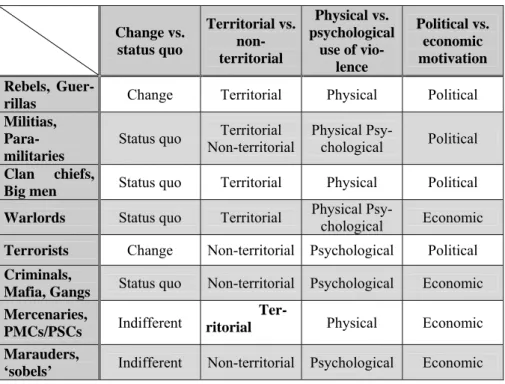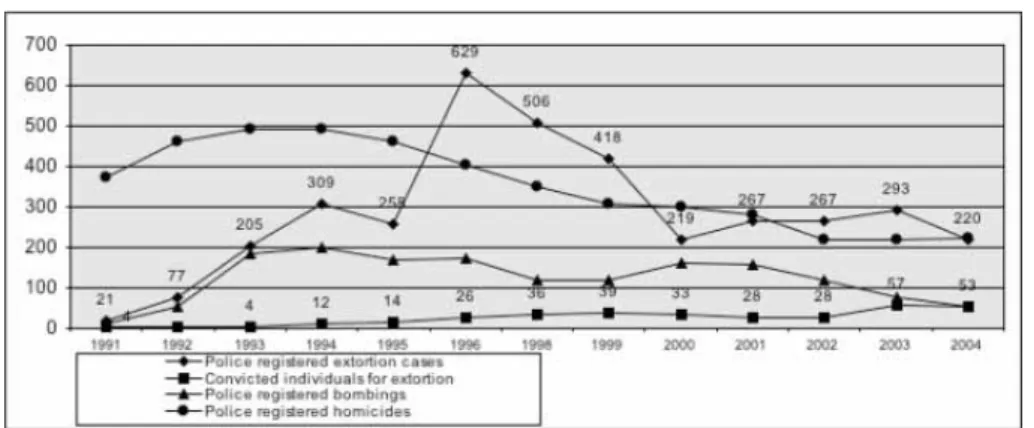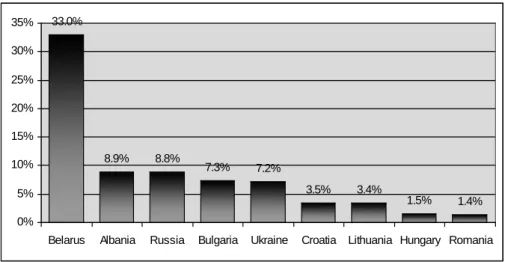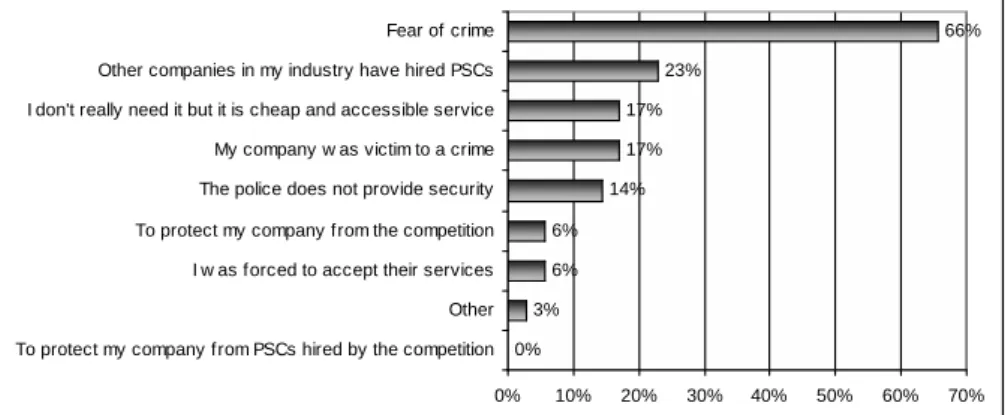The Geneva Center for the Democratic Control of Armed Forces (DCAF) is an international foundation whose mission is to assist the international community in promoting good governance and security sector reform. The first volume was published in 2003 under the title Challenges of Security Sector Governance; the second was published in 2004 under the title Reform and Reconstruction of the Security Sector; and the third volume in the series, published in 2005, was devoted to security management in post-conflict peacebuilding. The fourth edition of the series is dedicated to private actors and security management.
Common to this phenomenon in all its dimensions is that it has important implications for effective and democratically accountable security governance and is directly related to opportunities for Security Sector Reform (SSR) in various reform contexts. This book begins with an attempt to place the privatization of security in a broader framework that takes into account different understandings of the role of the state in international relations, concepts such as globalization, transnationalization, as well as the aftermath of 9/11. This volume could not have been successfully completed, especially in light of the tight timescales, without the invaluable support of many people.
Oliver Wates and Jason Powers provided excellent copyediting and technical editing assistance, respectively, and Tim Donais provided insightful comments and input on earlier drafts of the manuscript. The topics touched on in this volume were discussed at a workshop as part of the semi-annual DCAF International Advisory Board meeting, where DCAF IAB members made a number of important comments.
INTRODUCTION
This contrast is aptly illustrated by Ghebali (chapter 11) by comparing the views of the first and. Many of the themes picked up in contributions to this volume can be found in the wider discourse on ways to promote democratic governance of the security sector through SSR. This is a relationship characterized by uncertainty and change as demonstrated by his example of the 'sable' (soldier and rebel) who combines a role in the state security sector with engagement in criminal activities for profit.
In the post-Soviet cases discussed by Hiscock (chapter 7), the privatization of security was a consequence of the 'big bang' resulting from the collapse of the Soviet Union. These examples point to the 'teeth' inherent in entry processes and which could certainly be made more explicit in the appropriate conditions regarding the regulation of the private security sector. However, such developments must be consistent with the normative imperative of the safety management approach.
2 For a discussion of the concept of security governance, see: Hänggi, H., “Approaching Peacebuilding from a Security Governance Perspective,” in, Bryden and Hänggi, op. 4 This broad definition of the security sector is recognized by the existing OECD-DAC guidelines on RVS.
THE INTERNATIONAL POLICY CONTEXT
However, a major challenge for local security governance is posed by the activities of a number of armed non-state actors who undermine the state's monopoly on the use of force. In short, the state must secure a monopoly on the use of force as well as a monopoly on raising taxes and revenues. In other words, armed non-state actors are not only part of the problem, but sometimes must also be part of the solution.
24 See Carbonnier, G, 'The Role of Humanitarian Organisations: The Case of the International Committee of the Red Cross,' in Bailes and Frommelt, op.cit, 2004. In the aftermath of the Bosnian War, such an approach was taken over for- against the Bosnian Serb forces. The United Nations response to insurgency has seen partial successes as well as failures.
Therefore, the role of the international community in combating or engaging contemporary insurgencies is limited. 19 For a strong case of the international community's responsibility to come to the rescue of battered populations, see ICISS, op. Globalization and localization, integration and fragmentation have changed the conditions for the power monopoly of the nation-state.
Without fundamentally questioning the concept of the nation-state's monopoly of power, new international norms have emerged which require the international community to intervene. The international community's responsibility for protection is delegated Doubtful companies are legitimized by the UN. Third: Intervention and reconstruction are usually carried out because of humanitarian concerns in the international community.
The need for a multi-level public monopoly of power globalization and the erosion of the nation-state. The concept of the state monopoly of power involves the elimination of private armies and the disarmament of other armed non-state actors who wish to take the law into their own hands. The reconstruction of the monopoly of power is not only about re-establishing a central state monopoly of power.
The prohibition against the use of force, which is enshrined in the UN Charter, is of course a different matter than a monopoly of force on a global scale. Rebuilding the monopoly of power should not be geared primarily to creating or re-establishing effective institutions at the nation-state level.

REGIONAL AND NATIONAL PERSPECTIVES
This chapter examines the transformation of the private security industry in Bulgaria.1 The case of Bulgaria is particularly interesting for several reasons. First, it highlights the wide range of problems caused by the transformation of the private security industry between 1990-2006. Understanding the fundamental factors that contributed to the establishment and transformation of the private security industry is important for several reasons.
It analyzes the challenges facing Bulgaria and the factors that have contributed to the transformation of the private security sector from the perspective of security management. The new law marked the beginning of the second period in the history of Bulgarian PSCs. 27 Official letter from the Ministry of the Interior to the Center for the Study of Democracy, March 2005.
This case study examines whether this alternative policy direction has had any impact on the governance of the private security industry. Should we leave such an agency out of the security commercialization analysis? It is expected to be governed by the same control mechanisms as the rest of the MNZ.
As well as reducing numbers, the government has set several key priorities for police reform. It is difficult to talk about managing the private security sector in a situation where very few rules exist to regulate its behavior. However, at present, management of the private security industry has not been part of the dialogue on SSR in the region.
First, it examines what has been said about the South African case in some of the leading academic literature. Secondly, it contextualises the challenges posed by the sheer size of the South African PSC and PMC market. The South African PSCs of the early 1990s were generally staffed with apartheid-era personnel.
The regulation issued in terms of the RFMA legislation specified the procedures to be followed to comply with the requirements of the Act. It is clear that most companies in Iraq have acted in violation of the RFMA.



